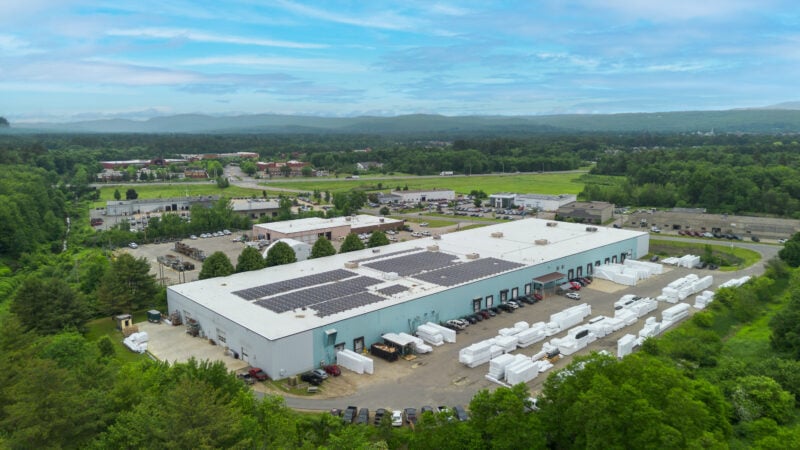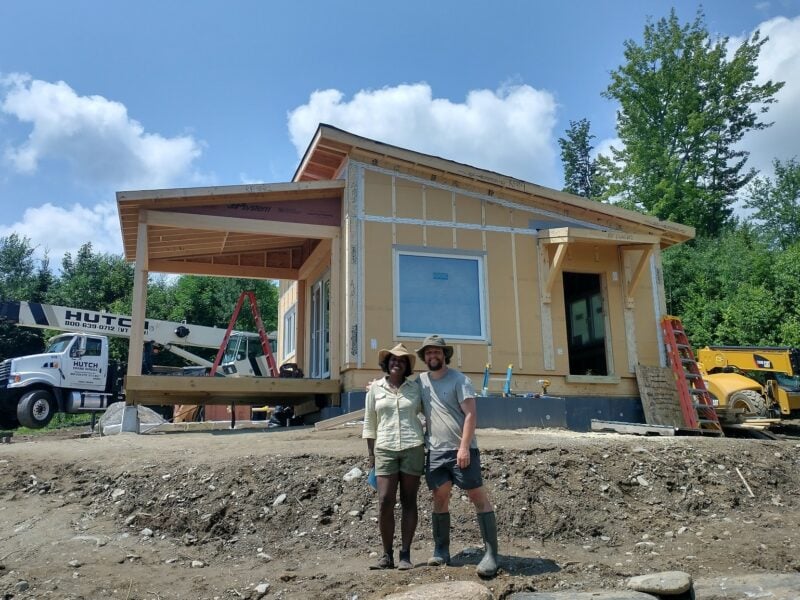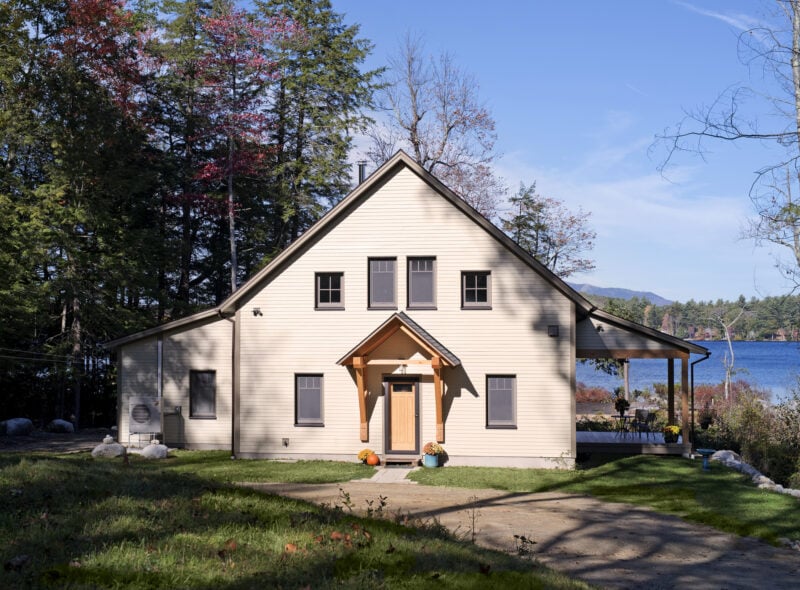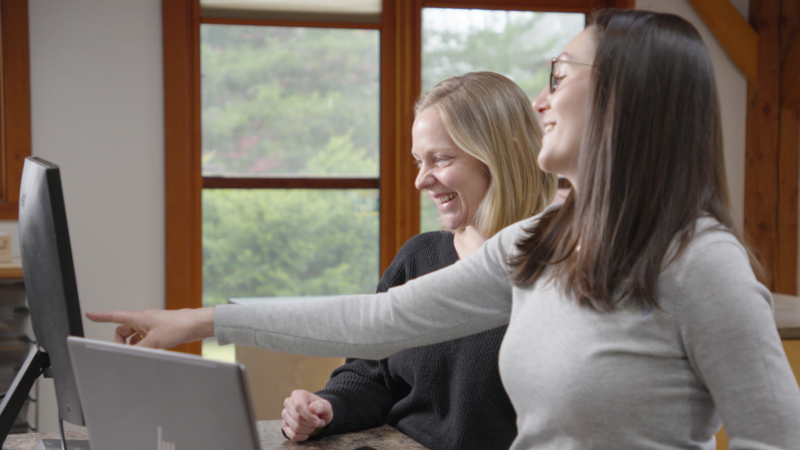Although Unity is continually striving to make the design-build process simpler and easier for our clients, there are certain aspects of each project that are outside of our control. Project financing is one such aspect. It can be a complex and time-consuming process even for conventionally built homes.
If your new home is to be high-performance and built using off-site methods, there are particular considerations to keep in mind for financing. We’ll make suggestions and recommendations, guide you through the financing process, and provide drawings and documentation along the way.
The steps required to finance a Unity project are basically the same as those for financing a home built conventionally on site. These include:
- Discuss borrowing options and the particulars of your project with one or more banks
- Submit an application and supporting financial documents
- Become prequalified for an estimated loan amount
- Submit plans, specifications, cost estimates and other project information
- The project is reviewed and appraised by the bank’s third-party consultants
- Obtain conditional approval/commitment letter
- Provide additional documents
- Close on the loan and start construction
- The loan proceeds are disbursed based on progress and inspections
- The construction loan converts to a fixed-term mortgage when the project is complete
The residential loan industry is based on certain assumptions about how the home will be built, the quality of construction, and the ongoing costs of ownership. Because Unity uses off-site construction methods to build high-performance homes (as opposed to building homes on site that meet just the minimum required code), there are important nuances to financing a Unity home. Unity works with you to provide information and documentation that will help to facilitate the borrowing process, and educate the various players – typically the bank’s loan officer, the appraiser and a third-party project management consultant.
Most Unity clients opt for some version of a construction-to-permanent loan. These loans start with an interest-only construction loan that is disbursed in chunks based on project progress. When construction is complete, the loan converts to a fixed rate mortgage based on previously-defined terms.
Some banks are able to include the purchase of the building lot in the scope of the loan. This option can have advantages in terms of minimizing closing costs, but downsides in terms of adding additional pressure to the design process and the project schedule.
There are several key points to emphasize in discussions about financing a Unity home:
APPRAISALS
Our homes are high-performance, with unusually high levels of energy efficiency, health, comfort and resilience. This translates into low costs for utilities and maintenance. This value that Unity builds into every home is not represented in the metrics commonly used by appraisers such as building size, number of bedrooms, number of bathrooms and the quality level of finishes and fixtures.
We’re finding that appraisals often come in lower than the cost of construction. We’re told by mortgage officers that this is true not only for the high-performance homes that Unity builds, but also for new construction in general. Houses are expensive to build, existing homes can be purchased for considerably less, and comparable sales are difficult to find.
There’s lots more to say about the subject of appraisals, but in a nutshell, we recommend that you:
- Insist on a qualified appraiser – ideally one who has completed professional development courses in green, sustainable appraisals.
- Provide good documentation that focuses on the value-added high-performance features. The Appraisal Institute (AI) offers numerous resources, and Unity will help fill out the AI’s Green and Energy Efficient Addendum.
- Have a contingency plan in case the appraisal comes back low. Financing less than 80% of the project cost gives more flexibility in financing.
LOAN DISBURSEMENTS FOR OFF-SITE CONSTRUCTION
Unlike conventionally-built homes, Unity Homes are panelized. We build these homes in large components in the controlled conditions of our state-of-the-art production facility, and our skilled crew assembles these components quickly on site with minimal exposure to the weather.
Because we are creating so much of the project value in our production facility, we require payment for the prefabricated components before we ship them to the site for assembly. Most banks are not used to releasing funds until the work has been completed on site. With a Unity project, the bank may be asked to disburse funds for the prefabricated panels and for the installed foundation at the same time.
Fortunately for projects involving off-site construction, there are workarounds that typically involve our emailing photos of the finished panels, or the bank sending an inspector to our facility to confirm that the work being requisitioned has been completed.
To minimize the possibility of any issues regarding the disbursement schedule, we recommend that you:
- Work with a local bank experienced in off-site construction. Unity can often make recommendations.
- Discuss the unique aspects of Unity’s system early-on with the bank.
PROJECT CONTRACTS
Unity offers two versions of “project delivery.” For projects near our facilities, Unity can offer a “finished house” service, general contracting all aspects of the home’s construction under one construction contract. For most of our projects, Unity provides the high-performance, weathertight shell of the home assembled on site, and the home is finished by a local general contractor. In these instances, you will have two contracts to cover the construction of the home: one contract with Unity, and another with the local general contractor.
The two-contract structure of many Unity projects has not generally been an issue for financing, but in the age of COVID, banks are tightening regulations, and we’re keeping a watchful eye on developments. Most banks understand that Unity’s well-established track record of minimizing risk through off-site construction is a win-win for the bank, the homeowner and the rest of the project team.
We look forward to supporting you as you engage in the sometimes-challenging but ultimately-rewarding process of financing your Unity Home.



















